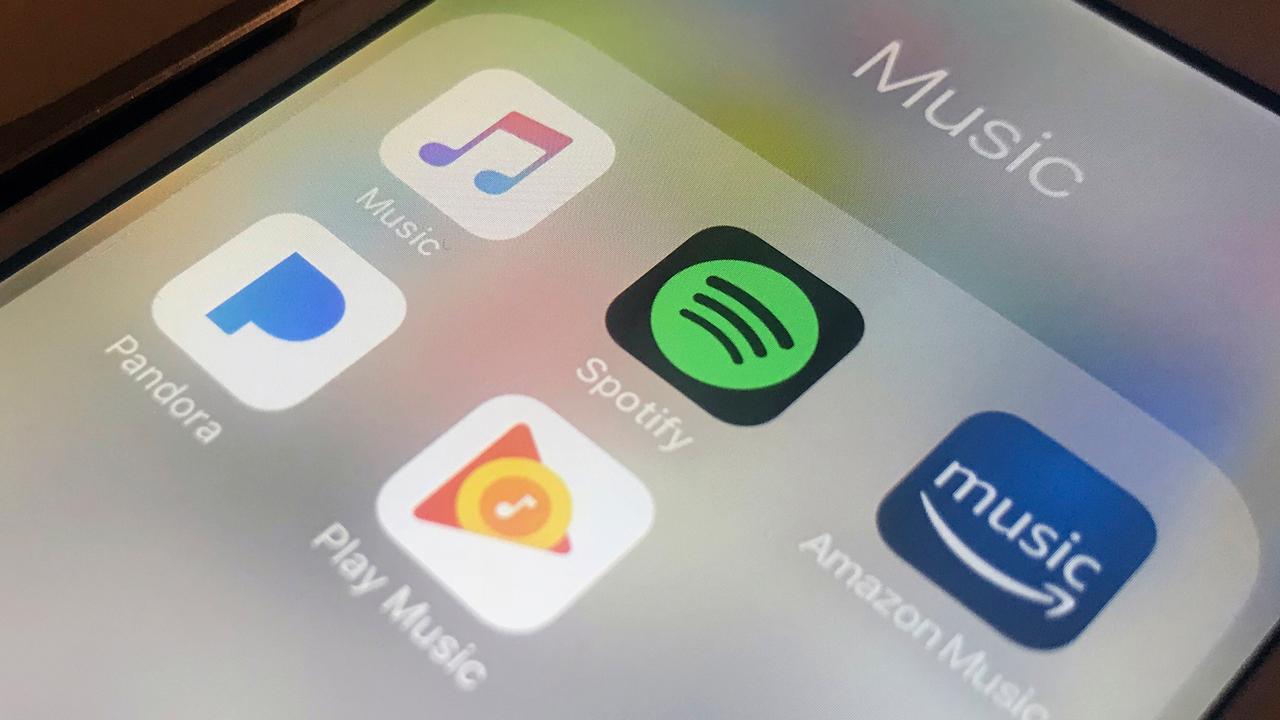How Apple and Amazon are trying to gain on Spotify
Spotify Technology SA, the Swedish company set to go public next week, is the global leader in music streaming, but several competitors are working to differentiate their service to win over artists and listeners.
Here's a look at the competition for music streaming, or listening to music over the internet in exchange for paying a flat monthly fee or listening to ads.
Apple Music
Apple Inc. launched its music-streaming service in 2015 a year after buying Beats Electronics LLC. Its debut stumbled over user interface and engineering problems, but the service was revamped within a year and quickly became the No. 2 on-demand service. Apple's iTunes, where customers pay to download individual songs or albums and own them permanently, is separate but accessible through the platform.
Apple Music has benefited from its integration with Apple devices, from iPhones and MacBooks to Apple Watches and HomePod voice-activated speakers, which sync easily with Apple Music but less so with Spotify or other services.
Apple Chief Executive Tim Cook has said streaming isn't a moneymaking business but has emphasized the importance of providing music and supporting artists.
Pandora
Veteran Internet-radio company Pandora Media Inc. has built the largest audio music-streaming service in the U.S. with 74.7 million active listeners to its free, ad-supported personalized music stations. The company and its stock have struggled recently as users and ad dollars have migrated to services that allow listeners to play individual songs on demand. Last year, a $480 million investment from Sirius XM Holdings Inc. was followed by a management shake-up that brought Sling TV's founding CEO, Roger Lynch, to the helm.
A new on-demand subscription service called Pandora Premium has nearly 5.5 million subscribers.
Founded on a technology called the Music Genome Project -- a combination of humans and machines that helped it analyze music and recommend songs for each listener -- Pandora has collected tons of data on music and its users. It is working to apply that technology to podcasts, which it hopes will attract and keep more listeners on its platform.
SoundCloud
SoundCloud Ltd. established its reputation as a free site for emerging artists and DJs to share and promote their music. It maintains a devout fan base, but also licenses music from major and independent labels to compete with Spotify and others. Founded in 2007, Berlin-based SoundCloud says it reaches about 175 million monthly listeners in more than 190 countries.
In 2016, it rolled out subscription tier SoundCloud Go+, which lets users listen to music offline and without ads. For $9.99 a month, it includes access to 150 million tracks, mostly mixes, mashups and other musical creations, in addition to a catalog of roughly 30 million songs that is also offered on other services like Spotify and Apple Music.
Last year, after a flurry of speculation over its ability to survive, SoundCloud laid off more than 40% of its staff and then replaced its leadership when it took $169.5 million from boutique investment bank Raine Group and Singapore investment company Temasek to stay afloat.
Google/YouTube
Alphabet Inc.'s YouTube alone accounts for twice as much time spent listening to on-demand music as all paid audiostreaming searvices combined, according to the International Federation of the Phonographic Industry. While artists continue to rack up massive streaming numbers on the video-sharing platform, the payout from those streams is much smaller than revenue brought in via subscription services.
After the record industry urged Google to offer more subscription options, it expanded its Google Play Music library platform in 2013 to include an "All Access" on-demand music-streaming service and has since launched a paid version of its popular videosharing service called YouTube Red.
The company is planning to combine the two services. Google doesn't disclose subscriber figures for either.
Amazon Music
The main draw for Amazon.com Inc.'s music service, introduced in 2016, is its ability to integrate with the company's voice-activated Echo smart speaker. The speaker's virtual-assistant technology, Alexa, takes requests such as "chart toppers from 1999." Last year, Alexa surpassed smartphones as the No. 1 way Amazon Music users access the service.
Since getting into the music-streaming business, Amazon, which doesn't release subscriber numbers, has tried to cater to a more mainstream audience than its competitors. Amazon has been pouring resources into Alexa, as competition heats up among artificial-intelligence assistants from Google and Apple, according to people familiar with the company's thinking.
Write to Anne Steele at Anne.Steele@wsj.com




















